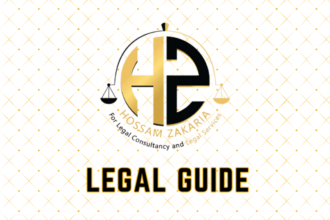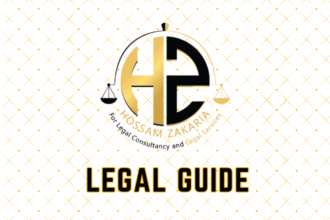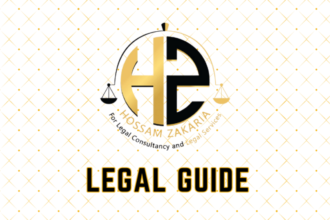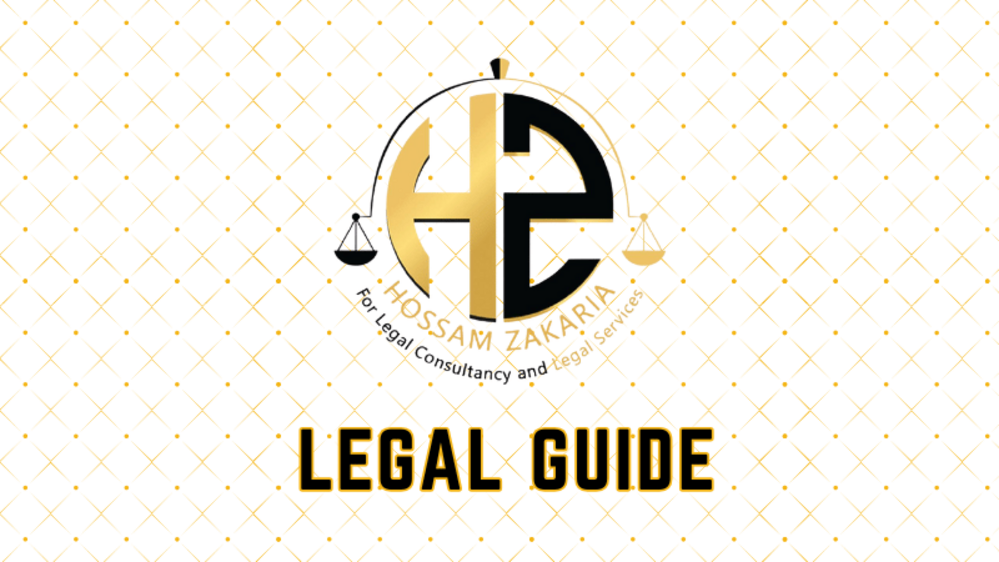Introduction: Navigating the Complexities of Qatar Aviation Safety Compliance in 2025
The global aviation industry is experiencing a period of rapid transformation, requiring not only operational excellence but also unwavering dedication to compliance with evolving regulatory frameworks. As the State of Qatar positions itself as a critical aviation hub in the Middle East, understanding and adhering to the latest aviation safety regulations remains paramount for organizations operating within, into, or overflying Qatar’s jurisdiction. This holds particular relevance for UAE-based airlines, aviation services providers, aircraft lessors, and executives responsible for cross-border fleet management and operational oversight.
Recent updates to Qatar’s Civil Aviation requirements and the issuance of new regulatory instruments by the Qatar Civil Aviation Authority (QCAA) are already reshaping the regional compliance landscape. The year 2025 marks a crucial phase as these regulations expand in scope, intensify enforcement, and introduce stricter penalties for non-compliance, reflecting Qatar’s approach to harmonize with International Civil Aviation Organization (ICAO) standards and facilitate safe, reliable air transport. For UAE stakeholders, a sophisticated understanding of these changes—along with actionable compliance strategies—is essential for risk mitigation, commercial continuity, and reputational safeguarding. This in-depth guide provides legal analysis rooted in UAE and GCC best practice, focusing on the practical implications of Qatar’s 2025 aviation safety regulations and their interplay with UAE Federal Law No. 6 of 1991 (as amended) and accompanying Cabinet Resolutions and Ministerial Guidelines.
Our goal is to equip legal advisors, corporate executives, airline compliance officers, and HR managers with the structured knowledge and actionable insights needed for proactive adaptation and strategic alignment.
Table of Contents
- Overview of Qatar’s 2025 Aviation Safety Regulations
- Legal Framework and Harmonization: Qatar and the UAE
- Breakdown of New Regulatory Provisions
- Comparative Analysis: Old versus New Provisions
- Legal and Commercial Impacts for UAE Stakeholders
- Risks, Enforcement, and Penalties
- Practical Compliance Strategies and Best Practices
- Case Studies and Hypothetical Scenarios
- Conclusion: Proactive Adaptation and Regulatory Foresight
Overview of Qatar’s 2025 Aviation Safety Regulations
In the last decade, Qatar has made significant strides in updating its aviation regulatory infrastructure to match international best practices. For 2025, the QCAA has unveiled a suite of new aviation safety requirements, consolidated under the Qatar Civil Aviation Law No. 15 of 2002 (as amended in 2024) and supplemented by updated QCAA Safety Directives 2025/01–2025/09.
Key regulatory drivers include:
- Alignment with ICAO Annexes 6, 8, 13, and 19 for safety, airworthiness, accident investigation, and safety management systems (SMS).
- Mandated improvements in aircraft maintenance programs and oversight of foreign-registered aircraft.
- Enhanced requirements for air crew licensing, recurrent training, and operational checks.
- Comprehensive reporting regimes covering incidents, hazards, and safety performance indicators.
- Revised enforcement mechanisms, including increased administrative penalties and criminal liability for gross non-compliance.
For UAE-based operators with routes to, from, or over Qatar, these developments necessitate both technical and organizational recalibration. The legal obligations are not mere formalities but represent material business risks and opportunities for operational uplift.
Legal Framework and Harmonization: Qatar and the UAE
Cross-Jurisdictional Relevance
While the focus here is on Qatar’s regulatory regime, UAE legal and business entities must regard these regulations as forming part of a broader, interconnected compliance environment. Commercial flights between the UAE and Qatar are governed by bilateral air services agreements as well as multilateral conventions to which both nations are parties—notably the Chicago Convention 1944—requiring adherence not only to domestic but also to the relevant foreign aviation laws.
The UAE’s Federal Law No. 6 of 1991 Concerning Civil Aviation (as amended by Federal Decree-Law No. 8 of 2018) sets the regulatory baseline, supplemented by Cabinet Resolution No. 40 of 2015 on aviation safety and Ministerial Guidelines periodically issued by the GCAA (General Civil Aviation Authority). Qatari regulations for 2025, however, introduce additional and sometimes stricter obligations, particularly regarding incident reporting, safety management, and foreign aircraft oversight.
Key Harmonization Points
- Both states recognize and implement ICAO standards but may maintain enhanced or tailored requirements.
- Cross-border operations must comply with the more stringent of the applicable rules.
- Licensing reciprocity may exist, but with conditions for validation and currency.
Legal practitioners and in-house counsel must be equipped to identify and bridge potential regulatory gaps, avoiding inadvertent breaches that can result in penalties or grounding of operations.
Breakdown of New Regulatory Provisions
Air Operational Requirements and Airworthiness Certifications
QCAA Safety Directive 2025/01 introduces a risk-based oversight regime focused on:
- Mandatory compliance with updated airworthiness directives for all aircraft operating in Qatari airspace, including foreign-registered aircraft.
- Continuous monitoring and digital submission of maintenance records using QCAA-approved systems.
- Requirement for real-time airworthiness status reporting prior to takeoff and landing at any Qatar airport.
Practical Insight: UAE operators must ensure their aircraft maintenance management software is compatible with QCAA systems, and ground staff are trained to fulfill digital record-keeping and submission requirements. Failure to align with QCAA standards—such as a mismatch in maintenance record format—can lead to aircraft being denied entry or delayed clearance, impacting punctuality and commercial reputation.
Personnel Licensing and Training Standards
QCAA Safety Directive 2025/02 and 2025/03 require that:
- Pilots, engineers, cabin crew, and air traffic controllers operating within Qatar possess either Qatari licenses or validated foreign licenses.
- All licenses and ratings are subject to annual revalidation, with freshly mandated proficiency checks, including fatigue risk management.
- Operators conduct and document comprehensive recurrent training—now obligatory every six months (shortened from twelve), in line with new ICAO amendments.
Practical Insight: HR and training managers for UAE-based carriers must review scheduling and record-keeping protocols, ensuring seamless tracking of license validity and training frequency. Delays in demonstrating compliance can result in wholesale crew groundings or operational disruptions.
Aircraft Maintenance and Engineering Protocols
Directive 2025/05 overhauls technical maintenance obligations:
- Mandatory implementation of a Maintenance Control Manual (MCM) that specifically references QCAA safety bulletins.
- Expanded scope for required compliance with manufacturer and authority-issued service bulletins.
- Enhanced audit and inspection rights for QCAA inspectors, including unannounced ramp checks.
Practical Insight: Maintenance and engineering contractors must now maintain more granular records, formatted according to QCAA templates. UAE service providers serving transiting or based airlines must upgrade documentation processes to comply with these enhanced record-keeping and reporting requirements.
Safety Management and Reporting Obligations
QCAA Safety Directive 2025/09 refines requirements for Safety Management Systems (SMS):
- Immediate (within 24 hours) reporting of any safety-related occurrence, near miss, or hazard—electronic reporting is mandatory.
- Quarterly submission of aggregated safety performance data to QCAA for trend analysis.
- Demonstrable and systematic safety culture and continual improvement initiatives, audited during QCAA inspections.
Practical Insight: Organizations must assign and empower a nominated SMS leader with legal authority and provide training in QCAA’s digital interface for occurrence reporting. Leadership teams are now personally accountable for non-reporting or falsified reports.
Security & Emergency Preparedness
New rules reinforce planners’ obligations to:
- Maintain updated airport and airline-specific Emergency Response Plans (ERP) that incorporate cyber-threats and biological hazards.
- Regularly rehearse crisis drills (minimum every 18 months) and share outcomes with QCAA.
- Cooperate with cross-border and interagency investigations following an incident or major air safety lapse.
Comparative Analysis: Old versus New Provisions
Comprehending the magnitude of these regulatory shifts requires a structured comparison. The table below summarizes key changes:
| Regulatory Area | Pre-2025 Regime | 2025 Reform Highlights |
|---|---|---|
| Airworthiness Data Submission | Paper or ad hoc electronic records accepted; quarterly submission | Mandatory real-time digital submission using QCAA system; pre-flight authorization required |
| Crew Licensing | Annual revalidation; paper-based checks; local licences for periodic duty | Semi-annual proficiency assessments; mandatory fatigue risk management modules; digital licence validation |
| Maintenance Protocols | MCM not tailored to QCAA; generic audits; occasional ramp checks | MCM must explicitly reference latest QCAA safety bulletins; enhanced, random QCAA inspector audits |
| Occurrence Reporting | 72-hour reporting window; optional digital submission | 24-hour deadline; reporting strictly through QCAA digital portal; leadership accountability |
| Emergency Preparedness | ERP covering only accidents, fire, and hijack; annual desktop drills | Expanded ERP for cyber, health threats; regular, documented crisis drills; cross-border cooperation |
| Penalties and Enforcement | Fixed fines for most infractions; limited criminal liability | Doubled fines, penalties indexed to revenue; expanded criminal culpability for systemic failures |
Visual Suggestion: Place this comparative table at the center of your compliance briefing for managers and use as a printable reference.
Legal and Commercial Impacts for UAE Stakeholders
Operational Exposure
UAE-based airlines, lessors, and maintenance providers active in Qatar now face heightened scrutiny and administrative demands, especially where aircraft or staff rotate between the two jurisdictions. Failure to rigorously observe the tighter Qatari standards may result in:
- Delays and detentions at Qatari airports due to documentation discrepancies.
- Suspension of operational approvals or aircraft slot denials.
- Triggering of notification obligations under UAE law (e.g., obligatory reporting to the GCAA).
- Reputational damage and potential commercial losses through loss of trust or contractual penalties.
Case Example: Dual-registered Aircraft Incident
Scenario: A UAE-flagged aircraft operating a charter into Doha is flagged during a QCAA-led ramp inspection for incomplete electronic maintenance logbooks. The QCAA issues an immediate ground stop, suspending the operator’s right to fly in Qatari airspace pending a full audit. Under UAE law, this triggers regulatory notification and a potential re-examination of the operator’s local GCAA authorizations. The dual exposure—regulatory and contractual—amplifies financial and legal risk.
Contractual and Liability Risk
Most UAE-Qatar aviation agreements allocate compliance risk to the operator, often with indemnification clauses for penalties. The 2025 regime’s higher administrative penalties (which may reach up to QAR 5 million or equivalent under gross breaches) raise the need for:
- Upfront due diligence on contractual compliance warranties.
- Reassessment of insurance terms to ensure coverage for regulatory fines and operational suspensions.
Risks, Enforcement, and Penalties
Expanded Enforcement Powers
The QCAA is now expressly empowered to:
- Issue urgent bans or detain aircraft for missing or inaccurate reporting.
- Levy financial penalties on both corporate entities and “accountable managerial personnel.”
- Initiate prosecution for willful or gross negligence resulting in material safety risk, with potential for criminal liability.
Risk Matrix: Non-Compliance Consequences
| Non-Compliance Scenario | Enforcement Tool | Consequences |
|---|---|---|
| Late occurrence reporting | Administrative fine, warning letter | QAR 50,000 per incident, escalation for repeated failure |
| Inaccurate digital maintenance record | Ramp detention, audit trigger | Unscheduled inspection, slot allocation freeze |
| Unlicensed crew operating | Operational ban, criminal referral | Personal liability, aircraft impoundment, criminal investigation |
| Missing ERP or crisis drill documentation | Warning, deadline for remediation | Graduated fine, possible suspension of operational approval |
| Falsified safety reporting | Criminal prosecution | Executive culpability, substantial fines, up to 3 years’ imprisonment |
Visual Suggestion: Incorporate a penalty matrix and a compliance checklist for easy reference by compliance and legal teams.
Practical Compliance Strategies and Best Practices
Legal and Operational Recommendations
- Gap Analysis and Internal Audit: Conduct immediate reviews of current compliance protocols against QCAA 2025 standards, focusing on areas where UAE local practice diverges from Qatari requirements.
- Digital Transformation: Invest in compatible maintenance and reporting systems capable of interfacing with QCAA’s digital submission platforms.
- Robust Training and Documentation: Institute biannual crew refreshers and targeted managerial workshops on digital record-keeping and regulatory reporting.
- Legal and Insurance Review: Amend contracts to clarify indemnification for regulatory penalties, and consult insurance advisors on expanded policy coverage for regulatory fines and operational suspension risk.
- Local Expert Engagement: Appoint or engage legal advisors specializing in Qatari aviation law to monitor ongoing compliance and liaise with QCAA.
Compliance Checklist
| Action | Responsible | Deadline/Frequency |
|---|---|---|
| Review and align Maintenance Control Manual | Maintenance Manager | Within 60 days and then annually |
| Ensure digital record compatibility | IT/Compliance | Immediate, then at system updates |
| Coordinate crew license validation and training | HR/Operations Manager | Every 6 months |
| Run emergency preparedness drills | Safety Officer | Every 18 months |
| Audit safety occurrence reporting systems | Compliance Officer | Quarterly |
Visual Suggestion: Use this table as an interactive or printable checklist for in-house compliance monitoring.
Case Studies and Hypothetical Scenarios
Case Study 1: UAE Airline Faces Crew Compliance Review
A leading UAE carrier operating to Doha faced a QCAA compliance intervention when it emerged that several flight attendants’ certificates, while valid in the UAE, had expired under Qatari law due to the six-month revalidation rule. Despite proactivity by the airline’s HR, the documentation lag resulted in a 48-hour operational halt and a QAR 100,000 penalty. Following a legal review, the airline integrated a multi-jurisdictional crew credential tracking solution and adopted an automated alert system for future compliance lapses.
Case Study 2: Maintenance Misalignment Exposes Lessors
A UAE-based aircraft lessor supplied several mid-life aircraft to a Qatari charter operator. During an incident investigation, QCAA auditors flagged that the Maintenance Control Manuals referenced outdated service bulletins and lacked direct citation of the latest QCAA directives. This resulted in the grounding of two aircraft and a requirement for a complete redraft of maintenance manuals, evidencing the depth of cross-border technical compliance needed.
Case Study 3: Scenario—Accident Response Triggers Cross-Border Liability
In an incident involving a UAE-registered aircraft, the operator faced parallel regulatory investigations by both the QCAA and UAE GCAA. A gap in the Emergency Response Plan for cyberattack risks led to coordinated enforcement actions and joint penalty decisions, highlighting the rising importance of advanced preparedness and bilateral legal cooperation.
Conclusion: Proactive Adaptation and Regulatory Foresight
The 2025 revolution in Qatar’s aviation safety regime signals a decisive shift towards rigorous, digitally transparent, and managerially accountable regulatory frameworks, with direct ramifications for UAE operators. While the new regulations introduce fresh compliance challenges, they also incentivize operational modernization and provide an opportunity for UAE firms to demonstrate international best practice leadership.
In-house legal teams, compliance managers, and business executives must invest in robust gap analysis, enhanced digital record-keeping, contractual risk review, and ongoing legal training. Diligent adherence protects against operational, financial, and reputational harm while positioning organizations for sustainable growth in Qatar’s dynamic aviation sector. Given the rapid pace of regulatory change, continuous monitoring of both Qatari and UAE legal updates through official sources such as the UAE Ministry of Justice, General Civil Aviation Authority (GCAA), and Qatar Civil Aviation Authority remains not only prudent, but imperative.
Best Practice Recommendations:
- Implement continuous training and system upgrades based on regulatory bulletins and official notifications.
- Maintain cross-functional legal and operational teams dedicated to multi-jurisdictional compliance.
- Build constructive relationships with regulatory advisors versed in both UAE and Qatari legal landscapes.
- Leverage technology for real-time compliance monitoring and early identification of regulatory discrepancies.
In a fast-evolving regulatory context, strategic compliance is not just a legal minimum—it is a competitive advantage and a driver of operational excellence.



